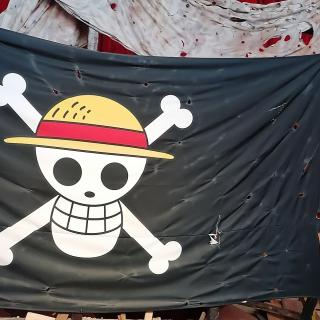Advertisement
Union stage crew workers have spent the last 1,300 days fighting one of the largest live entertainment companies in the Midwest for a fair contract. Yet fair wages, health and welfare benefits are still being denied to the workers who set the stage for highly lucrative live performances night after night.
Live entertainment is designed to excite and thrill audiences. At its best, live music fosters a sense of community created by shared experience and passionate performances of genuine human emotion. Behind all of this is a tremendous amount of hard work by working class folks with exceptional and unique skills.
When the curtain comes down and the lights come on and the last of the crowd filters out, an army of stage crew workers is still hard at work, turning around the venue for the next night’s show. Work in the live entertainment industry is hard by any standard, with typical days starting at 8 am and often continuing past closing time to 3 am or later.
Stage workers often live transient lifestyles, taking freelance work wherever they can find it. This means following acts on the road and sometimes taking any available paying gig, no matter how paltry the wage. Most stage workers in Columbus split their 50-70 hours per week among multiple employers, never accumulating enough hours from a single venue to qualify for healthcare and other benefits.
Four years ago, Travis Lautenschager (pictured above) was in the same state as millions of workers across the country: trying to navigate the early stages of the COVID-19 pandemic. The pandemic was especially hard on workers in the live entertainment industry, which struggled with closed venues and low demand for in person events. Travis had left town for a tour working as an audio technician with an American metal band. When he came back things had changed in Columbus.
“Suddenly everybody was passing around union cards. I had to get involved,” said Lautenschager.
Even during the global pandemic, PromoWest, the largest independent entertainment company in the Midwest, did not provide healthcare coverage for any of its stage crew employees. PromoWest owns and operates several major venues in Columbus, including Kemba Live!, Newport Music Hall, The Basement, and A&R Music Bar as well as Stage AE in Pittsburgh, PA, and Megacorp Pavilion in Newport, Kentucky. PromoWest also owns two of Cincinnati Ohio’s most popular music festivals, Bunbury Music Festival and Buckle Up Country Music Festival.
With no health care, no retirement benefits, no job security, and wages that lag far behind other employers in the industry including the entertainment giant Live Nation, stage workers at PromoWest organized and held a vote to unionize in the fall of 2020. Where at least 3 previous efforts to unionize PromoWest had failed, this vote succeeded by a narrow margin and the union was recognized by the NLRB on August 3, 2020.
PromoWest immediately initiated litigation with the NLRB to challenge the election results, all of which were unsuccessful. The union is legally recognized as the Local 12 chapter of the International Alliance of Theatrical Stage Employees and Moving Picture Technicians, Artists and Allied Crafts of the United States and Canada (IATSE), which is affiliated with the AFL-CIO.
The union includes all stagehand employees performing work in stagecraft, carpentry, electrical, sound, wardrobe, truck loading and unloading, and other related work employed by PromoWest at its four locations in Columbus, Ohio. It also includes the hospitality workers who run errands for artists and fulfill food and beverage requests.
Perhaps seeing an opportunity in the narrow margin of victory for union organizers, PromoWest has turned to other tactics to prolong contract negotiations with the union for nearly 4 years. Given the high turnover in the industry, it has fallen on a diminishing cadre of original organizers to pull successive generations of new stagehands into the unionization battle. In an industry with a traditional culture of freelance work and independent spirits, this can prove challenging.
“There’s always another kid fresh out of school who is willing to work for almost nothing just to get a foot in the door,” Lautenschager recalled.
These delays to negotiations have serious consequences for PromoWest workers. Local 12 stagehands are still working without healthcare coverage, four years into negotiations with their employer. Stage work is done on extremely tight timelines and can be quite dangerous. Lautenschager shared a case of a co-worker who fell from the stage rigging and shattered his hip. He ultimately needed a hip replacement and has been unable to work. If not for the cash raised by Local 12 and IATSE, he would have had no assistance at all.
Nevertheless, Local 12 stagehands are persisting in their struggle for fair wages, livable working hours, healthcare and retirement benefits. They know what live entertainment brings to the community in Central Ohio.
“The Newport is such an iconic building with so much history, we know how much these shows mean to people but we need the community to know that we need their support in this fight,” he said.
Lautenschager has worked as stage crew for every kind of event imaginable, from the horrorcore chaos of Insane Clown Posse to campaign events for Ohio Governor Mike DeWine. His work has taken him all over North America, Europe, Asia, and South America. This has presented unique opportunities to see how others work. “I’ve questioned others in the industry about their pay and benefits. This is how I know we are so behind here.”
He says there is no such thing as a typical day in his 12 years in the business, but the worsening work conditions made this struggle between the union and PromoWest inevitable.
“It’s unbearable just trying to survive sometimes. But you are never going to change anything if you just lay down and take it,” he said.



